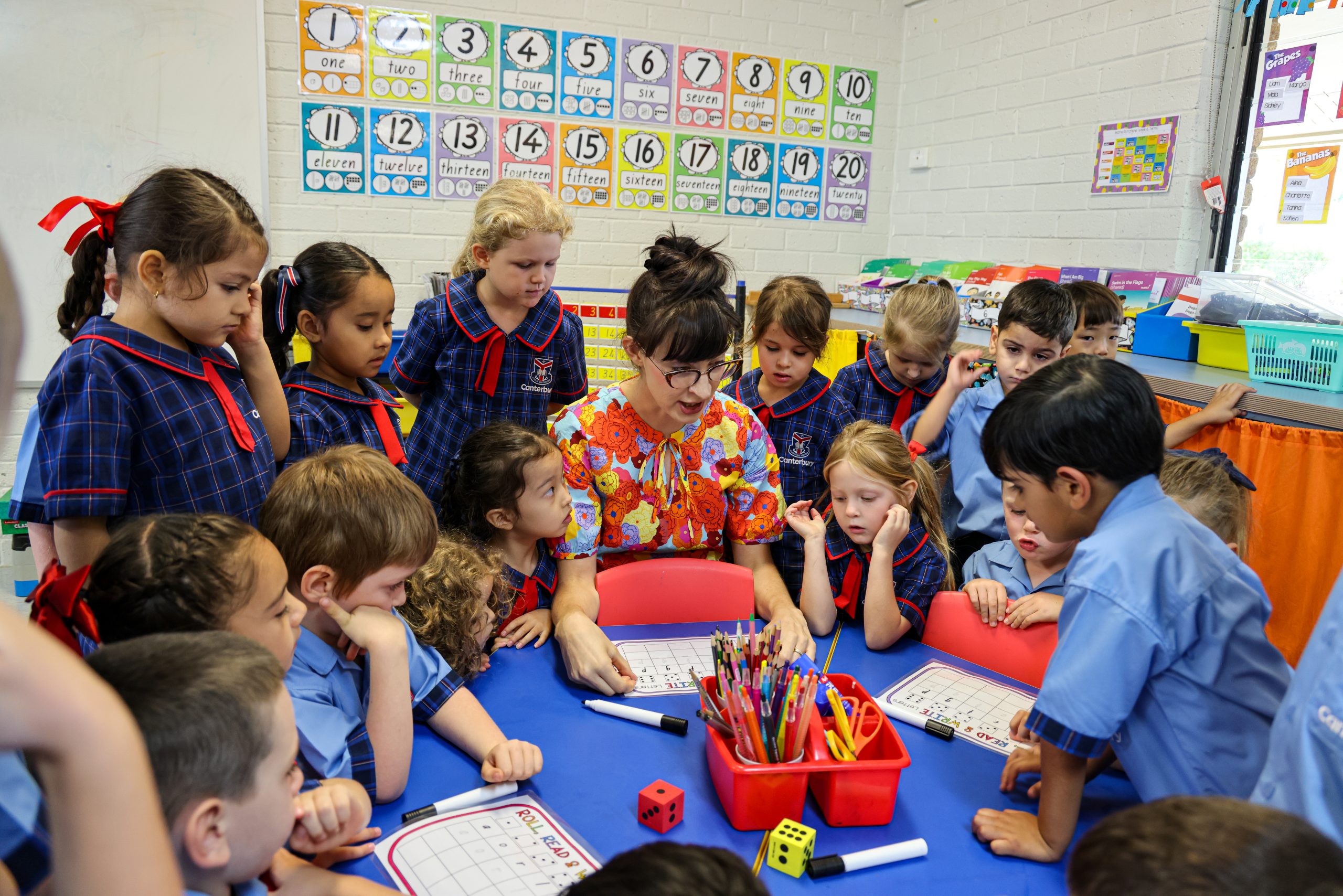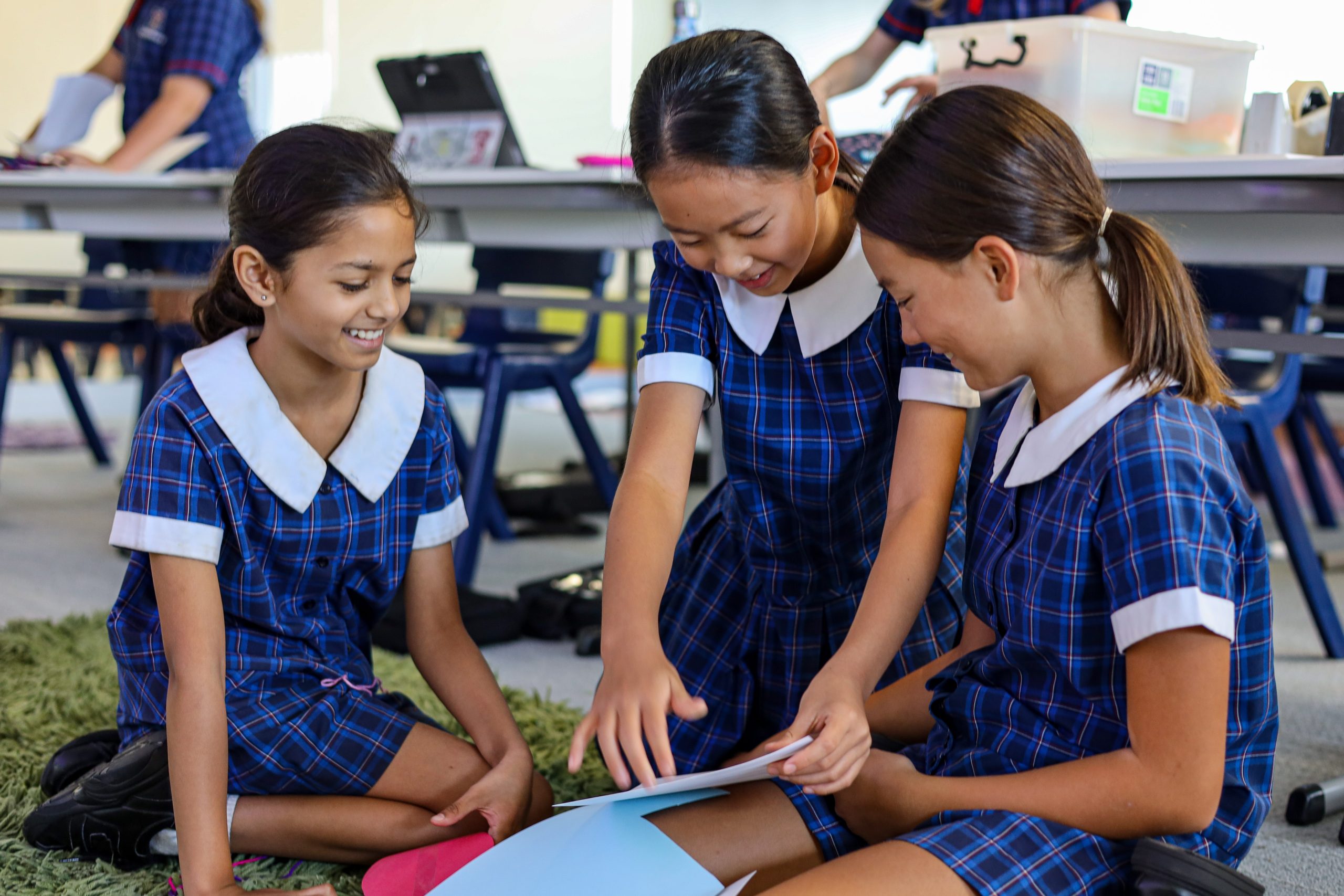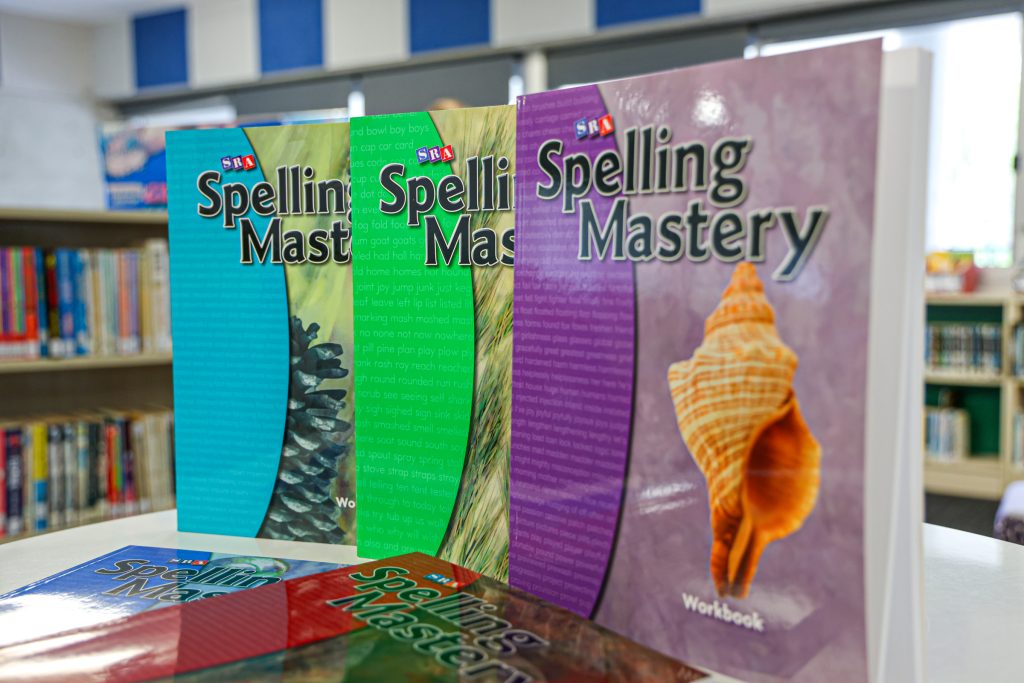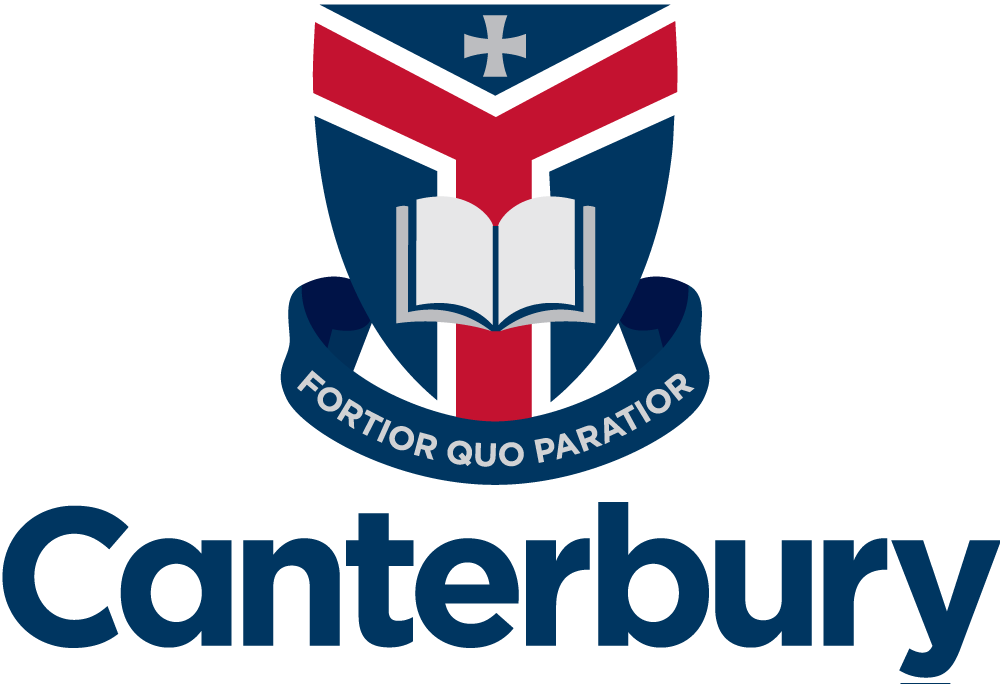Literacy and Numeracy
Canterbury teaches the basics of literacy and numeracy using nationally-recognised, evidence-based practices.
English: Prep – Year 2
The English curriculum for Prep – Year 2 places a strong focus on the development of early literacy skills.
From their foundation school year, when students learn to read and create texts, to becoming independent readers and writers who can communicate effectively in different ways and for different purposes, the emphasis in the early years is ensuring students have a firm grasp of English conventions.
2023 sees Canterbury College transitioning to the new version of the Australian Curriculum.
Through knowledge-based units, students are exposed to a wide variety of rich texts that allow them to explore different genres, building their knowledge base, vocabulary, and communication skills.
At Canterbury College, novice readers are supported to develop their reading skills through the teaching of The Big 6: Oral Language, Phonological Awareness, Phonics, Vocabulary, Fluency and Comprehension.
Students will read phonetically-controlled books to enable the practice of decoding words.
Writing development begins by students being able to construct sentences orally, progressing to writing complete and varied sentences within paragraphs and text types by Year 2.
In Years 1 and 2, text types and the language features of each are introduced formally.


English: Years 3-6
In the upper primary years, students will read and compare increasingly complex texts.
They will apply their knowledge of English conventions to other learning areas.
They will develop skills to communicate effectively, both in written and verbal form, for different purposes and settings.
The emphasis for students in the upper primary years is to consolidate their understandings and use of English conventions.
2023 sees Canterbury College transitioning to the new version of the Australian Curriculum.
Through knowledge-based units, students are exposed to a wide variety of rich texts that allow them to explore different genres, building their knowledge base, vocabulary, and communication skills.
Students move on from learning about phonics, to learning about how words work, through the teaching of spelling rules and patterns, morphology, and etymology.
Writing development is firmly grounded in students being able to construct complex sentences.
Grammar, syntax, and the mechanics of sentences are explicitly taught.
Students then apply this knowledge to different text types, incorporating specific text features into their written work.
Spelling Mastery Program:
Our Years 3-6 Research & Evidence-Based Direct Instruction Literacy Approach

My name is Christina Jasem – Head of Literacy Development at Canterbury College, and it’s my pleasure to give you a look into our new spelling program: Spelling Mastery.
Here at Canterbury, we are excited to continue the implementation of our literacy vision of using evidence-based approaches to teaching literacy.
We know that students who are competent spellers also succeed in other areas of literacy and learning.
To this end, Spelling Mastery is a great fit for our school.
Spelling Mastery is a research-based program that uses the Direct Instruction Approach to enable teachers to deliver highly interactive, structured lessons that help students learn dependable spelling skills.
Direct Instruction is a teaching method and instructional approach that emphasises clear and explicit teaching of skills and concepts.
Spelling Mastery maximises student learning through fully planned and structured lessons that are carefully delivered to students, breaking down complex concepts into smaller, manageable steps.
Direct Instruction methods are efficient and effective.
Students are taught the strategies, spelling rules and patterns they need to know to be successful spellers.
The Spelling Mastery program uses three main approaches to make learning to spell easier.
The first of these is the phonemic approach in which students are explicitly taught the relationship between spoken sounds and written letters, with direct application to the spelling of words.
The second is the morphemic approach.
Students are taught about word morphemes, that is, the smallest unit of meaning or grammatical function in words.
Teaching the meaning of prefixes, base words and suffixes, allows students to not only spell multisyllabic words, but also to see connections of meaning between other words with the same prefix or suffix.
The last approach is the whole-word approach.
This teaches students about etymology – where words originate from and how spelling patterns in English were influenced by this, a particularly important skill when learning words that include irregular spelling patterns.
This year, all students in Years 3-6 are participating in Spelling Mastery lessons three times per week.
Students have completed their Spelling Mastery placement test, and have already been placed into a group that meets their current spelling needs.
It’s wonderful to see students in different year levels working together and supporting each other.
Current skill sets aren’t compared to others.
And because students are working in a class that meets their needs, they experience success at every step of the way.
In the words of Arthur Chickering and Stephen Ehrmann, learning is not a spectator sport.
The teaching methods used in Spelling Mastery ensure that all students are contributing, learning, and demonstrating their understanding multiple times during a session.
When you walk into a Spelling Mastery class, you will see 100% engagement.
In each session, students practice their knowledge of word structure and word meanings.
Having an automatic recall of these skills will empower students to be creative, analytical, and expressive writers across all learning areas.
We believe that the introduction of Spelling Mastery will greatly enhance our student’s learning experience and contribute to their academic success.
Mathematics
Mathematics in the Junior School consists of explicit instruction alongside solid practise of maths skills, maths mentals and problem-solving through investigations.
The Junior School utilises a ‘whole school’ approach to Mathematics which immerses students in relevant, real-life maths investigations.
These engaging investigations allow students to genuinely apply and practise their knowledge of maths concepts.
Students are initially taught full concepts explicitly, and then progress to utilising their problem-solving tools to apply this learning in real-life situations.
Mental computation skills are also specifically taught.
This refers to completing calculations ‘in your head’ rather than recalling basic facts.
It is not necessarily more efficient than written computations.
However, the importance lies in its portability and flexibility.
As our students proceed through Junior School, they will develop an increasing repertoire of mental strategies to assist with calculating and estimating mentally.

